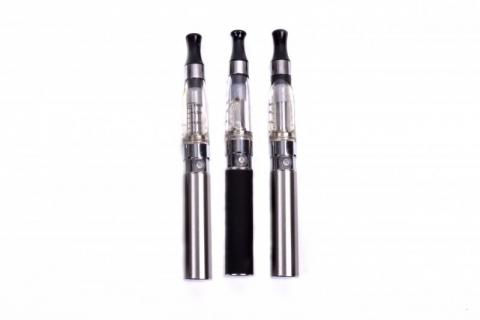PHA expresses concerns on e-cigarettes

Statement below was issued on 02/07/14, updated advice was issued on 19/08/15 and is available here.
The Public Health Agency (PHA) is urging caution on the use of electronic cigarettes, known as ‘e-cigarettes’, saying it is too early to determine whether suggested benefits outweigh potential risk.
Devices currently on the market do not meet appropriate standards of safety and quality. The level of risk associated with their use is not known. Their contents are particularly dangerous for children, and if swallowed, could be potentially fatal.
Gerry Bleakney, Strategic Lead for Tobacco Control at the PHA, said: “The Public Health Agency recommends that members of the public who wish to stop smoking and are ready to do so should avail of one of over 600 free stop smoking services across Northern Ireland, commissioned by the PHA. These services, based in community pharmacies, GP surgeries, hospitals, community centres and workplaces, provide personal support and free nicotine replacement therapy, such as gum or patches.
“A combination of specialist support and licensed medication is four times more likely to achieve a stop in smoking behaviour than willpower alone.
“The PHA is in favour of the regulation of all nicotine-containing products, and it will be important to have a strong framework in place to address safety, quality and marketing issues around e-cigarettes.
“Research on the use of e-cigarettes as an aid to stop smoking is limited, but there is strong evidence that the existing stop smoking services in Northern Ireland remain the most effective way to stop smoking.’’
Impact on young people
Aside from the unregulated status of e-cigarettes and the lack of evidence about their safety, the PHA has serious concerns that they may act as a gateway to lifelong use of nicotine by young people and lead to uptake of smoking.
Gerry continued: “The marketing of e-cigarettes is reminiscent of the approach to cigarette promotion in the past. These products may be creating a new generation of nicotine addicts, and could act as a gateway to tobacco smoking. This would have a serious long-term impact on the health of our population. They might also encourage people who have given up smoking to return to nicotine, which could lead to them taking up smoking again.
“There is a major risk that e-cigarettes are ‘renormalising’ the image of smoking, which would have a negative influence on young people who have grown used to smokefree public places.
“The highly-successful ban on smoking in workplaces and the increasing number of smokefree locations have helped us move away from the idea that smoking is socially acceptable, but the increasing prevalence of e-cigarettes and their use in places where smoking is banned and elsewhere could reverse much of this progress.
“It is the PHA position that in general, e-cigarettes should not be used in any public space where tobacco smoking is not permitted.”
Lethal liquid and fire risk
The PHA is also warning that the contents of e-cigarettes are highly toxic, presenting a particularly serious risk to children and pets if ingested, inhaled or if contact occurs with the skin or eyes. There have been a number of children poisoned by ingesting refill liquid within the last four years and one child death has been reported.
Gerry said: “Since e-cigarettes are not currently medicinal products, they may not be childproof or carry appropriate health warnings.
“Some e-cigarette refills are made with sweet-smelling chemicals and packaged in brightly-coloured tubes that could be attractive to babies and young children.
“Refills may contain up to 36mg/ml of nicotine and testing has shown that the amount of nicotine can vary considerably between products and from batch to batch. Ingesting a dose of 40mg of nicotine can be fatal for an adult, so a fatal dose for a child would be substantially less.
“E-cigarettes and refills must be kept out of reach of babies and children, and anyone who has swallowed e-cigarette liquid should be taken immediately to an Emergency Department.”
There have also been reports of e-cigarettes exploding or the chargers causing a fire. This would pose a particular risk for individuals receiving oxygen therapy – e-cigarettes should not be used or charged in close proximity to a patient who is undergoing oxygen therapy or close to the oxygen source itself.
The PHA shares the Faculty of Public Health’s concern that the safety of e-cigarettes has not been scientifically demonstrated and that they present potential and currently undetermined risks for health at individual and population level, especially if use occurs among current non-smokers.
Gerry concluded: “Lots of support is available for people who want to stop smoking – you don’t need to use e-cigarettes.’’
For more information on the location of the 600+ free stop smoking services, useful tips on how to stop smoking or to order a free a ‘Quit Kit’, visit the PHA's Stop Smoking (stopsmokingni.info) website.
The PHA will regularly review its advice in light of emerging evidence about effectiveness and best practice.
Follow the PHA on Twitter (www.twitter.com/publichealthni) and Facebook (www.facebook.com/publichealthagency).
